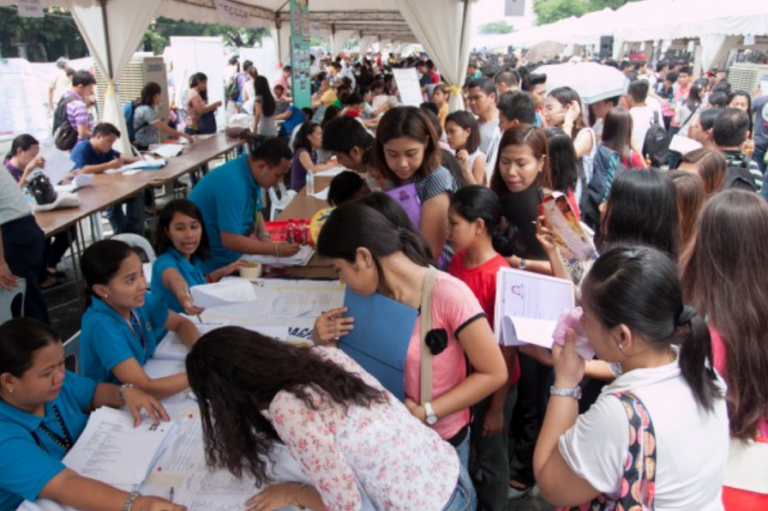
Research group IBON said that the latest January 2019 labor force survey data showing employment falling confirms that the jobs crisis continues to worsen. The group stressed that the worst job creation today among all the post-Marcos administrations is a better indicator of the economy’s health than the abstract growth figures the Duterte administration always insists on highlighting. The agricultural sector in particular is collapsing which will worsen already wide rural poverty.
The Philippine Statistics Authority (PSA) recently reported that the number of employed Filipinos actually fell by 387,000 to 41.4 million in January 2019 from 41.8 million in the same period last year. The contraction in employment comes after the economic team hailed the Philippines as “one of the fastest-growing economies in Asia” and “in a higher growth trajectory” upon announcing 2018 full-year growth of 6.2 percent.
IBON pointed out that jobless economic growth has clearly worsened under the Duterte administration. Employment has contracted in the January labor force survey (LFS) only five times in the 33 years of the post-Marcos era – by 529,000 in 1997, by 270,000 in 2005, by 1.5 million in 2014, by 1.3 million in 2017 and by 387,000 in 2019. Two of these are under the Duterte watch, IBON stressed.
The PSA also reported that the unemployment rate and number of unemployed fell in January, to 5.2% and 2.2 million respectively. IBON however stressed that the contraction in employment is the real indicator of the employment situation. The group also explained that the seemingly improved unemployment figures are a statistical illusion and only because millions of jobless Filipinos are not being counted as unemployed. They have become discouraged by the weak jobs market and have stopped looking for work.
IBON pointed out that this statistical illusion also explains why the labor force is decreasing despite the growing population. The number of Filipinos in the labor force has decreased by 505,000 to 43.6 million from 44.1 million because discouraged job-seekers are not counted as unemployed but rather as ‘not in the labor force’. The labor force participation rate (LFPR) has correspondingly fallen to 60.2% which is the lowest of all January rounds of all post-Marcos administrations, which further affirms the worst jobs crisis since 1986.
IBON’s initial estimate of unemployment including discouraged workers has the real number of jobless Filipinos at 4.5 million, or 2.3 million more than official but underestimated figures. The real unemployment rate is also closer to 9.8% rather than just 5.2% as officially reported.
The group also drew attention to the worsening agricultural crisis. The agriculture sector lost a huge 1.7 million jobs with the number of employed here falling from 10.9 million in January 2018 to just 9.2 million in January of this year. This is the worst loss in agriculture jobs across all January rounds among post-Marcos administrations, said the group.
Agriculture is hemorrhaging, said IBON, from chronically weak government support and continued liberalization. This will only worsen as the full impact of rice sector liberalization under the Rice Tariffication Law begins to be felt and as hundreds of thousands of rice farmers are pushed into bankruptcy.
The group also noted how job creation in other sectors is not enough to offset agriculture job losses. The most new jobs were in construction but, despite the hyped Build, Build, Build infrastructure offensive, only 490,000 additional construction jobs were created. This was followed by 244,000 additional jobs in public administration and defense and compulsory social security.
IBON however raised concern that most of these are likely just momentary jobs. The construction sector is notorious for just providing short-term contracts while the boost in public administration jobs may just be related to the upcoming elections. Public administration also spiked by 328,000 jobs in January 2016 prior to the last presidential elections.
IBON stressed that the continuing and worsening economic crisis should be the most important issue in the upcoming elections. The group said that all the candidates should be grilled on whether or not they understand the gravity of the country’s economic problems and on what steps they will take to address the jobs and agriculture crisis. ###